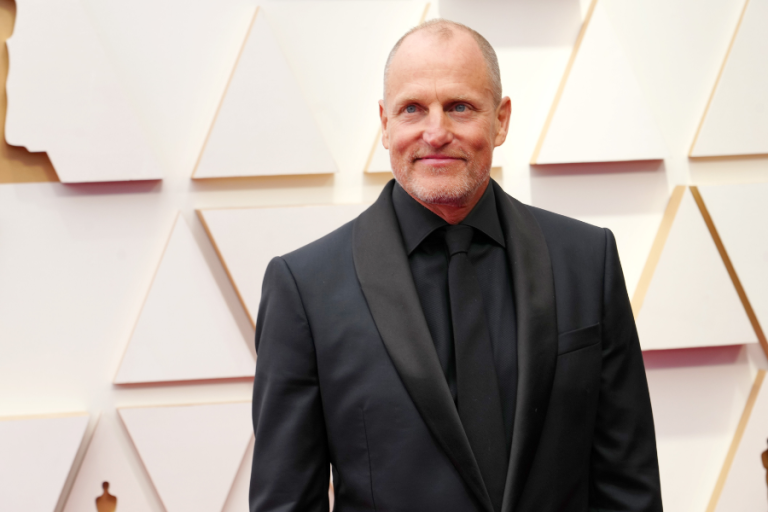
Liz Wheeler
In the cacophonous arena of American political commentary, where voices often blur into a predictable chorus, Liz Wheeler stands out. She is a figure who elicits strong reactions—seen by her supporters as a courageous truth-teller, a necessary counterpunch to a dominant liberal media, and viewed by her detractors as a provocative partisan warrior. But whether one agrees with her or not, her rise to prominence is a telling story about the evolution of modern conservatism, the power of new media, and the appetite for a certain kind of unyielding rhetorical style.
So, who is Liz Wheeler beyond the sharp monologues and viral clips? Her journey from a curious student to a influential media personality is a roadmap to understanding the currents shaping the American right.
The Formative Years: Building an Intellectual Foundation
Liz Wheeler does not come from a long line of politicians or media insiders. Born and raised in the Midwest, her early life was grounded in a context that would later inform her worldview. She was a student at the University of Pittsburgh, but it was her decision to continue her education at the Pontifical John Paul II Institute for Studies on Marriage and Family in Washington, D.C., that proved to be a turning point in her intellectual and philosophical outlook. Wheeler was provided with a solid framework for comprehending human dignity, natural law, and the fundamental components of society by the Institute’s focus, which was based on the teachings of Pope John Paul II. This wasn’t just a political education; it was a philosophical and theological one. It equipped her with a set of first principles from which she would analyze all political and social issues. For Wheeler, politics is not merely a debate over tax rates or regulations; it is a battle over foundational truths about human nature, freedom, and the role of the state.
This academic background is crucial to understanding her on-air persona. When she debates, she often leans on these philosophical underpinnings, arguing from a place of what she frames as objective truth rather than political convenience. This sets her apart from commentators who may focus solely on the day’s headlines.
The Ascent: From O’Reilly to “Tipping Point”

Wheeler’s entry into the media world was not an overnight sensation. She worked as a producer for the Glenn Beck Program at the beginning of her career, which was more typical. This behind-the-scenes role was an invaluable apprenticeship in the mechanics of conservative media—understanding audience engagement, argument construction, and the power of narrative.
One America News Network (OANN), a channel that would position itself as a staunchly conservative alternative to Fox News, provided her with her first significant on-air break. At OANN, she was given her own show, Tipping Point with Liz Wheeler. Here, her distinctive style became clear and found an audience. Tipping Point was not your typical panel-based talk show. Its format was primarily a monologue. For twenty to thirty minutes, Wheeler would take a single, pressing issue—from religious liberty and the Second Amendment to critical race theory and COVID-19 policies—and deconstruct it through her conservative lens. The presentation was polished, her delivery was direct and fast-paced, and her conclusions were unequivocal.
The show’s signature element was its opening monologue, often packaged into short, shareable clips for social media. In these clips, she would speak directly to the camera, her tone often shifting from measured explanation to impassioned polemic. In the digital age, where people have short attention spans and an argument that is compelling and well-edited can spread far and wide on platforms like Facebook, Twitter, and YouTube, this format was ideal. Liz Wheeler became a household name among conservatives thanks to these viral segments. She wasn’t just reporting the news; she was delivering a verdict.
The Wheeler Philosophy: Core Tenets of a Worldview
- Missing the nuance of Liz Wheeler’s positions would be to simply label her as “conservative.” Classical liberalism, cultural conservatism, and a profound skepticism of institutional power combine in her philosophy. Several key tenets form the bedrock of her commentary:
- Individual Liberty and Limited Government: This is the central pillar of her belief system. She sees the greatest threat to individual freedom as the expansion of government. Whether arguing against vaccine mandates, sweeping environmental regulations, or federal overreach in education, her core argument always returns to the fundamental right of the individual to live free from coercive state power.
- The Primacy of Truth (Objective vs. Subjective): Wheeler frequently uses her academic background to criticize the idea of subjective truth, which she links to postmodernism and “woke” ideology. She argues that feelings and personal narratives are taking the place of objective reality, which is based on biology, natural law, and data that can be proven. This position is encapsulated in her catchphrase, “I don’t do opinions, I do the truth,” which positions her as a revealer of uncomfortable, hard facts that a corrupt media class ignores. She is a firm believer in the singular goodness of the American project, which was founded on Judeo-Christian principles and the Enlightenment ideals of the Founding Fathers. American Exceptionalism and Sovereignty She believes that globalist organizations and international agreements violate American sovereignty and undermine the nation’s constitutional republic as a result. Cultural Conservatism as a Bulwark: Wheeler sees the traditional family, faith, and patriotism as essential pillars for a healthy society. She opposes what she labels as “cultural Marxism,” an umbrella term she uses for ideologies that seek to deconstruct these traditional institutions. Her commentary on transgender issues, for example, is framed as a defense of biological reality and the protection of children from what she perceives as a harmful ideology.
The Style: Why She Resonates (and Provokes)
Liz Wheeler’s effectiveness is as much about her style as it is about her substance. In a media landscape where audiences are weary of both-sides-ism and cautious commentary, her approach is deliberately different.
- Unapologetic Certainty: In an age of ambiguity, Wheeler offers certainty. She does not hedge her claims or couch her arguments in caveats. This projected confidence is deeply appealing to an audience that feels lied to by mainstream institutions and is searching for voices they perceive aas trustworthy and brave.
- The Direct-to-Camera Monologue: This format creates a powerful, intimate connection with the viewer. It feels less like a debate and more like a one-on-one briefing. It allows her to build a complex argument without interruption, controlling the narrative from start to finish.
- Rhetorical Flair: Wheeler is a skilled rhetorician. She uses repetition, rhetorical questions, and a cadence that builds to a crescendo, making her segments feel like persuasive speeches rather than dry news analysis.
This very style is also the source of her criticism. Detractors argue that her monologue format avoids the accountability of a real-time debate with knowledgeable opponents. They contend that her “truth” is often a selective presentation of facts that supports a predetermined ideological conclusion, and that her tone can be dismissive and divisive.
The Transition: Life Beyond OANN
In 2021, Wheeler announced her departure from OANN and Tipping Point. This move signaled a new phase in her career, emblematic of a broader trend where influential media personalities leverage their fame to build independent, audience-supported platforms.
She now operates primarily through her own website and subscription service, where she offers exclusive content, podcasts, and commentary. This model frees her from the constraints and editorial control of a television network, allowing for a more direct and unfiltered relationship with her audience. It demonstrates the economic viability of the conservative new media ecosystem and is a business model that has been successfully pioneered by Ben Shapiro and Dan Bongino.
Liz Wheeler’s Net Worth and Influence
While her exact net worth is not public information, her successful career in television, followed by a lucrative independent platform, suggests a significant financial standing. A reasonable estimate for a media personality of her prominence, with best-selling books and a thriving subscription service, would place her net worth comfortably in the range of several million dollars. However, her true value is her influence. She has cultivated a dedicated audience that doesn’t just listen to her, but trusts her to frame their understanding of complex political events.
Conclusion: A Symbol of a Polarized Media Landscape
Liz Wheeler is more than just a commentator; she is a symbol of a deeply polarized media landscape. Her success is a direct response to a perceived lack of ideological diversity in mainstream media. For her supporters, she is a necessary warrior in a cultural war, using her intellect and communication skills to defend the values they hold dear. For her critics, she represents the kind of partisan certitude that deepens societal divisions.
Regardless of one’s perspective, her story is undeniable. She leveraged new media platforms to bypass traditional gatekeepers, built a brand on the pillars of philosophical conviction and rhetorical force, and now represents a powerful, independent voice in the conservative movement. In understanding Liz Wheeler, one understands not just a person, but a significant and influential segment of the American political conversation. Her voice, unwavering and clear, is sure to remain a “tipping point” in political debates for years to come.




